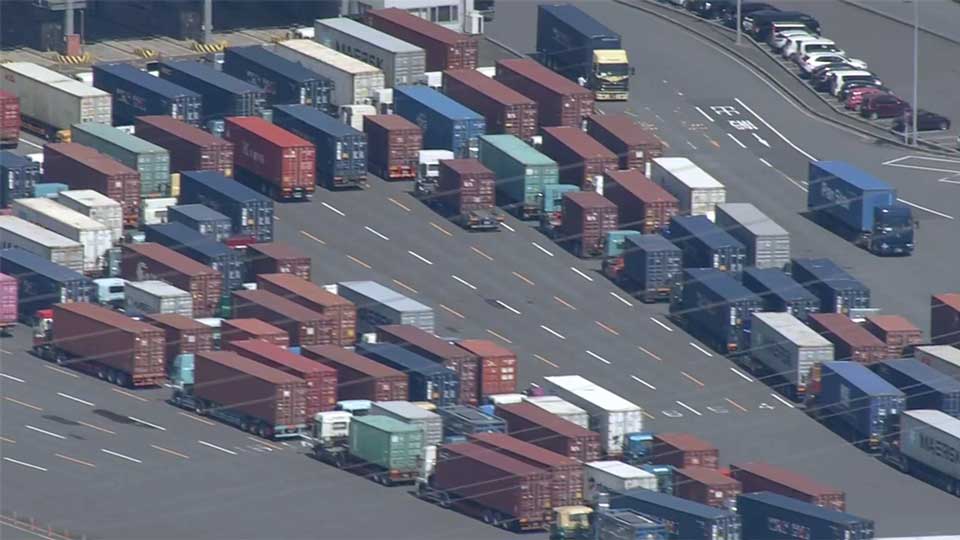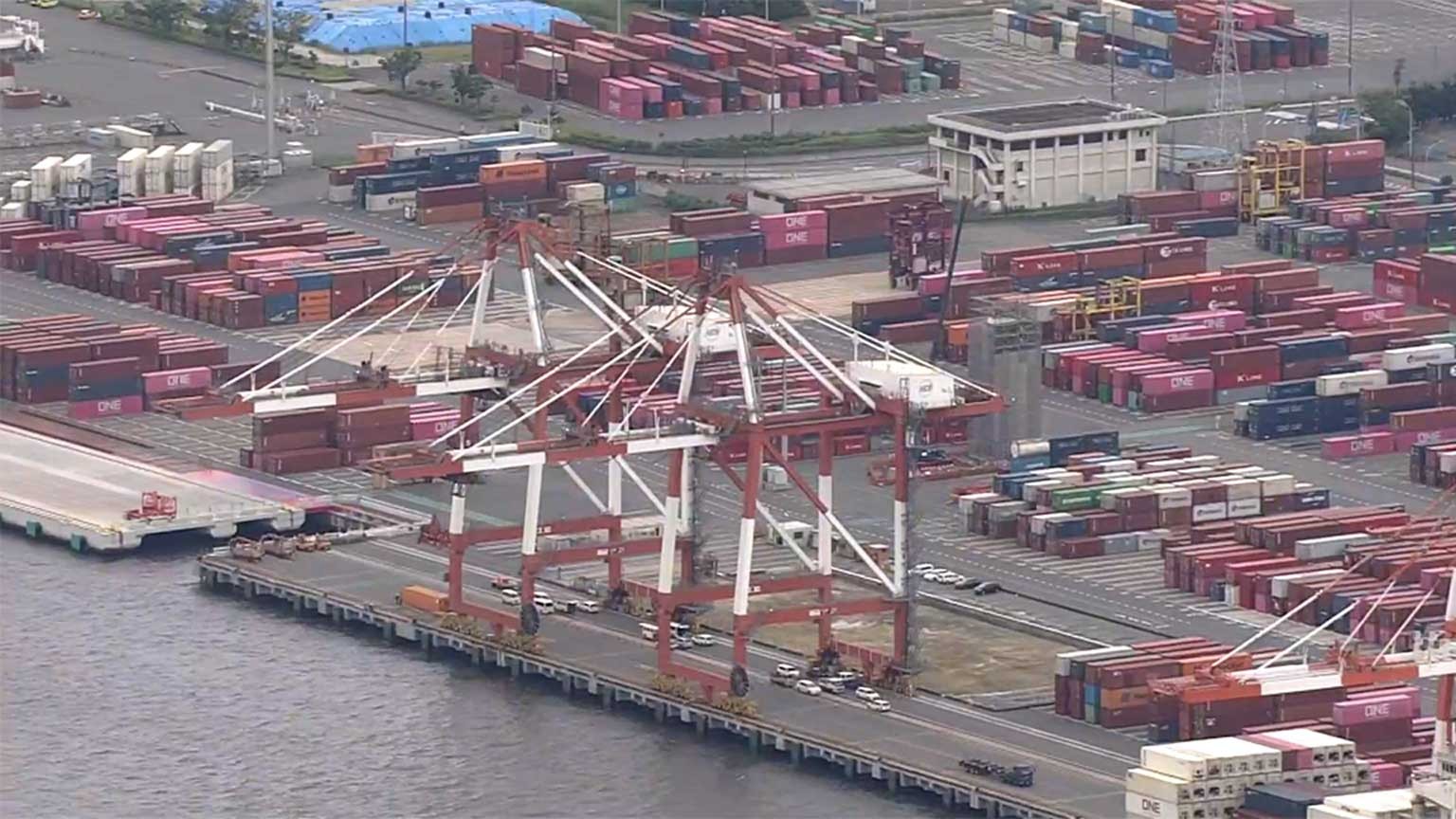A glitch occurred early Tuesday in the computer system that manages container loading, unloading and transport. It affected all five terminals at the country's largest port by volume of cargo handled last year.
System operator Nagoya Harbor Transportation Association says the hacker group LockBit 3.0 made a ransom demand in exchange for returning control.
Weary drivers waiting in line
Earlier on Thursday, long lines of trucks could be seen at the port as drivers waited for operations to resume. Many were growing increasingly frustrated.

One said he had been waiting since 6:30 a.m. as the association had initially hoped to restore the system by 8:30 a.m. on Thursday.
Another bemoaned the delays, saying it wasn't even possible to go to bathroom.
Others called for effective countermeasures to stop cyberattacks causing disruption again.
Expert warns of impact on supply chains
Speaking on Wednesday, Shibasaki Ryuichi, an expert on shipping and logistics and Associate Professor of the University of Tokyo Graduate School, warns of possible substantial economic damage.
"If the system is restored within a few days, there will probably be no substantial damage," he said. "But if the port's functions remain suspended for a longer period, supply chains could be affected."
Shibasaki urged the operator to strengthen security to prevent similar incidents from happening in the future, as the issue could lead to a major impact on the economy in the central part of the country.

Operator under pressure to find fix
Kikukawa Koshin, senior managing director at the Nagoya Port Transport Association, says it has been fielding requests for a rapid solution as the backlog continues to build up.
Close to 20,000 containers are believed to have been affected by Thursday.
"It is a serious situation," said Kikukawa. "We are making every effort to restore the system."

